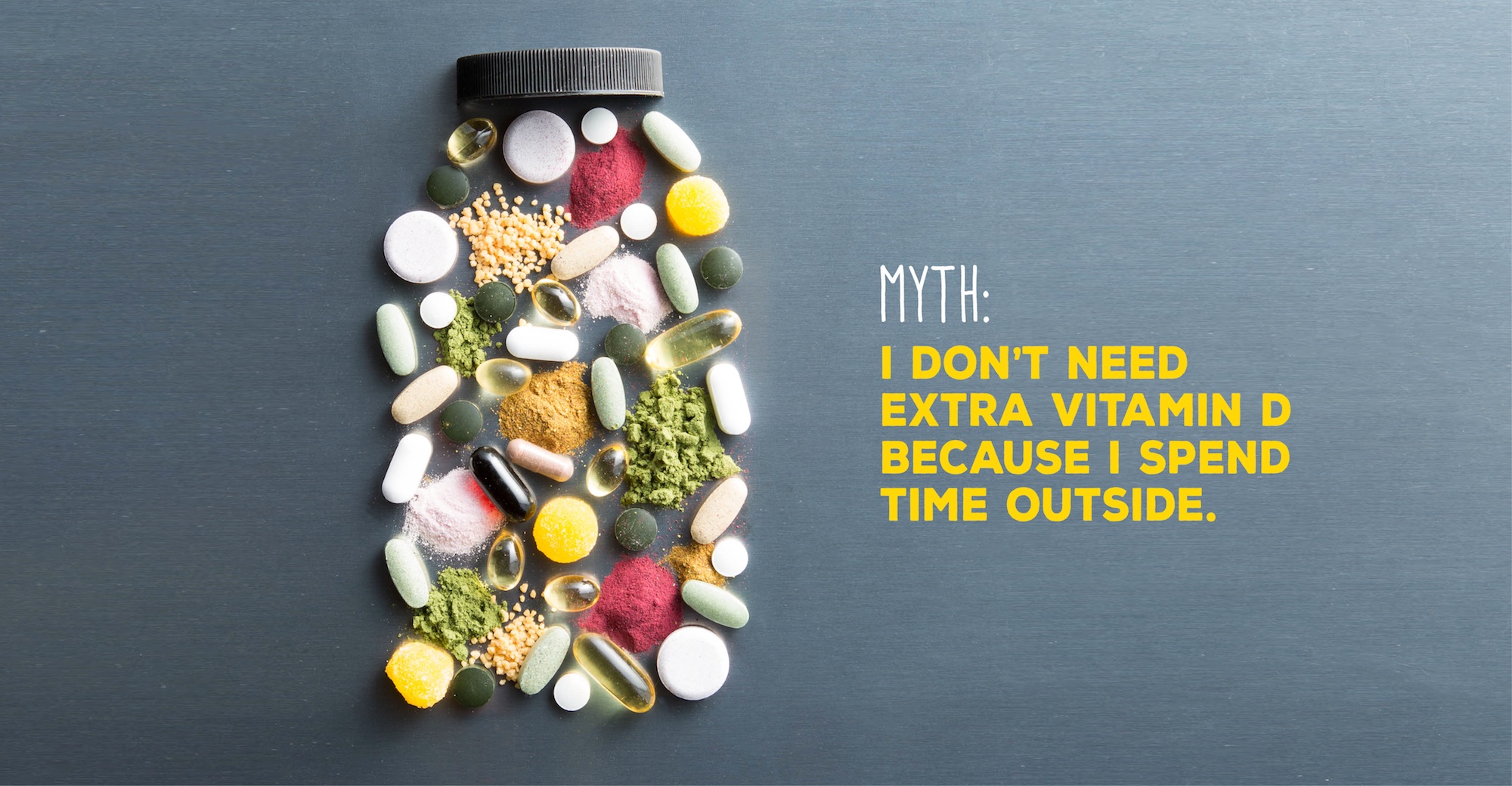6 supplement myths, debunked
Myth: I don't need extra vitamin D because I spend time outside.
“Vitamin D is not easily obtained from foods, as it was intended to be synthesized in the body after exposure to sunlight,” explains Dr. Low Dog. Unfortunately, seasonal cold weather and short days along with long working hours mean the majority of us spend the most of our days indoors. The ubiquitous use of sunscreen—a prudent protective step against skin cancer—also interferes with our natural vitamin D production.
Beyond supporting bone formation, vitamin D plays an important role in overall health and “can help protect against certain cancers (breast and prostate), autoimmune diseases such as MS, Type 1 diabetes and heart disease,” says Dr. Marita Schauch. Ask your health care provider to check your vitamin D levels to make sure they’re in the range recommended by the Endocrine Society (at or above 30 ng/mL), says Low Dog—who recommends that most people take 1,000 to 2,000 IU of D3 daily.
